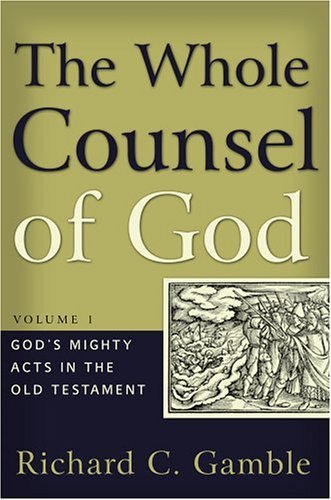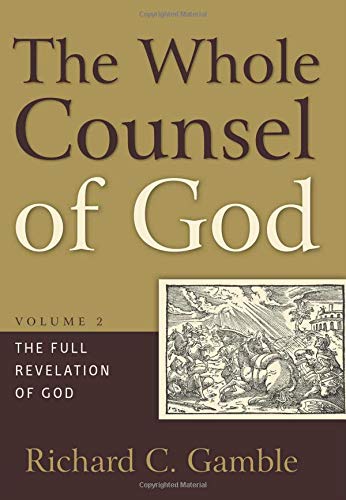A Brief Book Notice from Books At a Glance
By Fred Zaspel
The work that has gone into these two (of a projected three) volumes is just staggering, and there has scarcely been another work like it. Gamble’s approximately 2,000 pages provide a comprehensive Systematic Theology that is informed and driven by Biblical Theology in which he shares a lifetime of learning and broad-ranging scholarship. And yet, remarkably, his work is eminently accessible to all readers and, as Sinclair Ferguson notes in his Foreword,
Dr. Gamble sees no antithesis between the study of theology and growth in grace. In this sense, his aim is the apostolic one. He writes “for the sake of the faith of God’s elect and their knowledge of the truth, which accords with godliness” (Titus 1:1). Readers will therefore discover that these pages are sprinkled with very specific suggestive reflections and applications as well as find that the general approach prompts reflection of the own that will enable them to “grow in grace and knowledge of our Lord and Savior Jesus Christ” (2 Peter 3:18). This is to do theology in the great tradition of Augustine and Calvin and adds a distinctive dimension to this trilogy.
A Biblical-Systematic Theology not for professional theologians only but for all of God’s people.
Volume 1 treats Old Testament revelation; volume 2, newly released, treats New Testament revelation. Each chapter in volume 2 concludes with “Key Words” emphasized, “Study Questions” for review and further reflection, and “Resources for Further Study” (a brief annotated bibliography).
Systematic Theologies of the traditional mold will doubtless retain their important place, but Gamble’s work breaks the mold and just may suggest a new way forward: begin with Genesis and work your way forward through God’s unfolding revelation in order then to construct a Systematic Theology. It’s a marvelous idea, and he pulls it off with obvious skill. Take just five minutes to browse these two volumes and you’ll be impressed with how deeply informed it is.
This work deserves a wide reading. And its method deserves further attention – for teaching and for learning.

